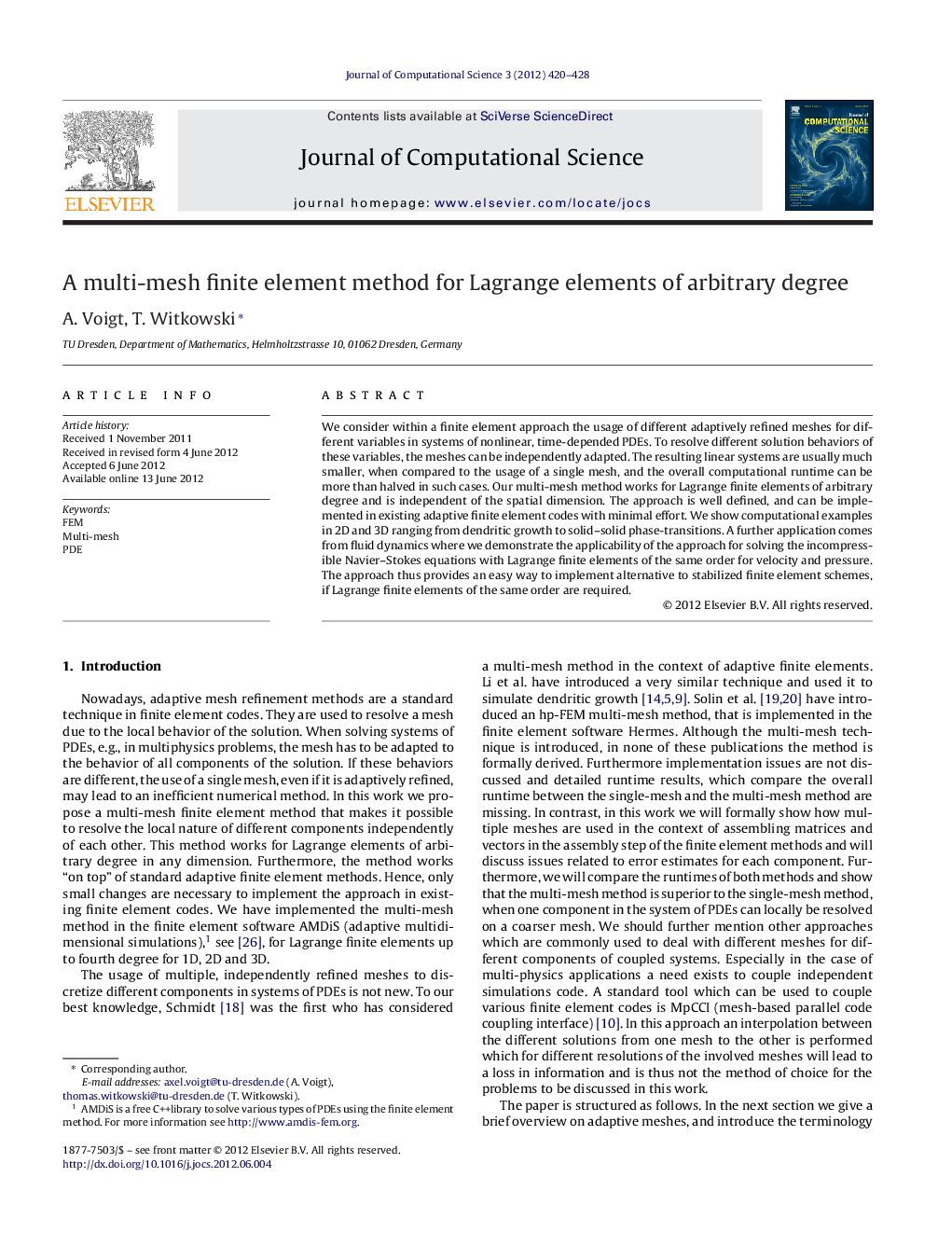| Article ID | Journal | Published Year | Pages | File Type |
|---|---|---|---|---|
| 429441 | Journal of Computational Science | 2012 | 9 Pages |
We consider within a finite element approach the usage of different adaptively refined meshes for different variables in systems of nonlinear, time-depended PDEs. To resolve different solution behaviors of these variables, the meshes can be independently adapted. The resulting linear systems are usually much smaller, when compared to the usage of a single mesh, and the overall computational runtime can be more than halved in such cases. Our multi-mesh method works for Lagrange finite elements of arbitrary degree and is independent of the spatial dimension. The approach is well defined, and can be implemented in existing adaptive finite element codes with minimal effort. We show computational examples in 2D and 3D ranging from dendritic growth to solid–solid phase-transitions. A further application comes from fluid dynamics where we demonstrate the applicability of the approach for solving the incompressible Navier–Stokes equations with Lagrange finite elements of the same order for velocity and pressure. The approach thus provides an easy way to implement alternative to stabilized finite element schemes, if Lagrange finite elements of the same order are required.
► We present a multi-mesh finite element method. ► Different meshes resolving different variables can be adapted independently. ► This leads to an efficient method for the solution of PDEs with multiple variables.
